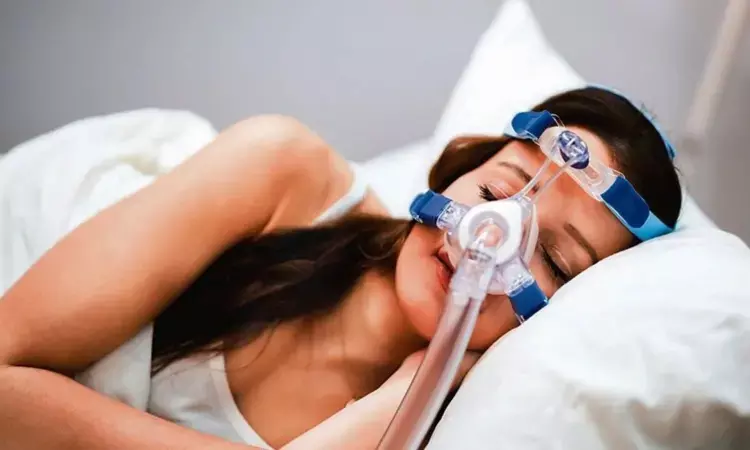- Home
- Medical news & Guidelines
- Anesthesiology
- Cardiology and CTVS
- Critical Care
- Dentistry
- Dermatology
- Diabetes and Endocrinology
- ENT
- Gastroenterology
- Medicine
- Nephrology
- Neurology
- Obstretics-Gynaecology
- Oncology
- Ophthalmology
- Orthopaedics
- Pediatrics-Neonatology
- Psychiatry
- Pulmonology
- Radiology
- Surgery
- Urology
- Laboratory Medicine
- Diet
- Nursing
- Paramedical
- Physiotherapy
- Health news
- Fact Check
- Bone Health Fact Check
- Brain Health Fact Check
- Cancer Related Fact Check
- Child Care Fact Check
- Dental and oral health fact check
- Diabetes and metabolic health fact check
- Diet and Nutrition Fact Check
- Eye and ENT Care Fact Check
- Fitness fact check
- Gut health fact check
- Heart health fact check
- Kidney health fact check
- Medical education fact check
- Men's health fact check
- Respiratory fact check
- Skin and hair care fact check
- Vaccine and Immunization fact check
- Women's health fact check
- AYUSH
- State News
- Andaman and Nicobar Islands
- Andhra Pradesh
- Arunachal Pradesh
- Assam
- Bihar
- Chandigarh
- Chattisgarh
- Dadra and Nagar Haveli
- Daman and Diu
- Delhi
- Goa
- Gujarat
- Haryana
- Himachal Pradesh
- Jammu & Kashmir
- Jharkhand
- Karnataka
- Kerala
- Ladakh
- Lakshadweep
- Madhya Pradesh
- Maharashtra
- Manipur
- Meghalaya
- Mizoram
- Nagaland
- Odisha
- Puducherry
- Punjab
- Rajasthan
- Sikkim
- Tamil Nadu
- Telangana
- Tripura
- Uttar Pradesh
- Uttrakhand
- West Bengal
- Medical Education
- Industry
Aroxybutynin plus atomoxetine novel oral therapy for obstructive sleep apnea: MARIPOSA phase 2b trial

USA: The MARIPOSA Phase 2b trial, which sought to assess the safety, safety, and dosage requirements of AD109 (aroxybutynin + atomoxetine), an oral therapy for patients with obstructive sleep apnea, has yielded encouraging findings.
The findings were presented during the "Breaking News in OSA Mini-Symposium" held at the American Thoracic Society (ATS) 2023 International Conference in Washington, DC.
AD109 showed clinically meaningful improvement in obstructive sleep apnea (OSA). And that was in the form of decreasing the Apnea Hypopnea Index (AHI) and also exhibited improvement in daytime symptoms. AD109 demonstrated a statistically significant reduction of AHI4 at both doses tested compared to placebo. Oral therapy can potentially address an unmet need in obstructive sleep apnea treatment.
The MARIPOSA trial was a one-month randomized, double-blind, placebo-controlled study conducted by Paula Schweitzer, PhD, an investigator in the MARIPOSA trial and the Director of Research at St. Luke’s Sleep Medicine and Research Center, Chesterfield, MO. that aimed to determine the optimal dosage of AD109, a potential treatment for obstructive sleep apnea. A diverse group of 294 participants with varying levels of OSA severity, ranging from mild to severe (AHI4 of 10-45), were enrolled across 25 sites in the United States. The study included parallel arms comparing different doses of AD109, two doses of AD504 (another investigational drug in an earlier development stage), atomoxetine alone, and a placebo.
In addition to assessing the primary endpoint of dose-finding, the MARIPOSA trial also incorporated various standard clinical measures to evaluate improvements in oxygenation, sleep quality, and daytime functioning among patients with OSA. These endpoints provided a comprehensive understanding of the therapeutic potential of AD109 in addressing the multifaceted challenges associated with OSA.
The findings of the study were:
• The main analysis of the MARIPOSA trial included 211 patients (41% female) with a median age of 55 years (range: 48-60) and a median BMI of 32.2 kg/m2.
• These patients were randomized to receive AD109, atomoxetine, or placebo. These patients' median baseline AHI4 (Apnea Hypopnea Index) was 19.55, corresponding to a median baseline AHI3a of 35.90.
• In the AD109 2.5mg/75 mg dose group, AHI4 was reduced from a median of 20.5 to 10.8 events per hour (p<0.001 compared to placebo). Overall, 41% of participants achieved an AHI below 10 with AD109 treatment, 44% experienced a greater than 50% reduction from baseline, and 15% had an 80% or greater reduction. AD109 demonstrated clinically significant reductions in AHI across all severity levels of OSA.
• The MARIPOSA results also indicated that AD109 had the potential to improve daytime symptoms associated with OSA. Patients treated with AD109 showed a statistically significant improvement in daytime functioning, as measured by the PROMIS-Fatigue scale.
• AD109 also showed a trend toward statistical significance in scales assessing other important OSA symptoms, such as PROMIS-Sleep Impairment and PROMIS-Sleep Disturbance.
Based on productive discussions with the FDA in February 2023, Apnimed plans to advance AD109 (aroxybutynin 2.5mg/atomoxetine 75mg) into Phase 3 trials. Additionally, the trial included an exploratory sub-study of AD504, another investigational oral medication by Apnimed, which showed promising efficacy in OSA. Apnimed will continue to develop and optimize the dosing of AD504 for the OSA population. Apnimed intends to present further findings and analyses from the MARIPOSA trial at upcoming scientific conferences as part of its commitment to improving the lives of patients with sleep disorders.
"There's been a long-term need for development of a pharmaceutical (for obstructive sleep apnea) and up until now, we have not had much success," Schwetizer said.
Reference:
Apnimed Presented Positive Phase 2b Results on AD109, an Investigational Oral Drug for Obstructive Sleep Apnea, for the First Time at ATS 2023. News Release. Apnimed. Published May 21, 2023. https://apnimed.com/apnimed-presented-positive-phase-2b-results-on-ad109-an-investigational-oral-drug-for-obstructive-sleep-apnea-for-the-first-time-at-ats-2023/
Dr Kamal Kant Kohli-MBBS, DTCD- a chest specialist with more than 30 years of practice and a flair for writing clinical articles, Dr Kamal Kant Kohli joined Medical Dialogues as a Chief Editor of Medical News. Besides writing articles, as an editor, he proofreads and verifies all the medical content published on Medical Dialogues including those coming from journals, studies,medical conferences,guidelines etc. Email: drkohli@medicaldialogues.in. Contact no. 011-43720751


